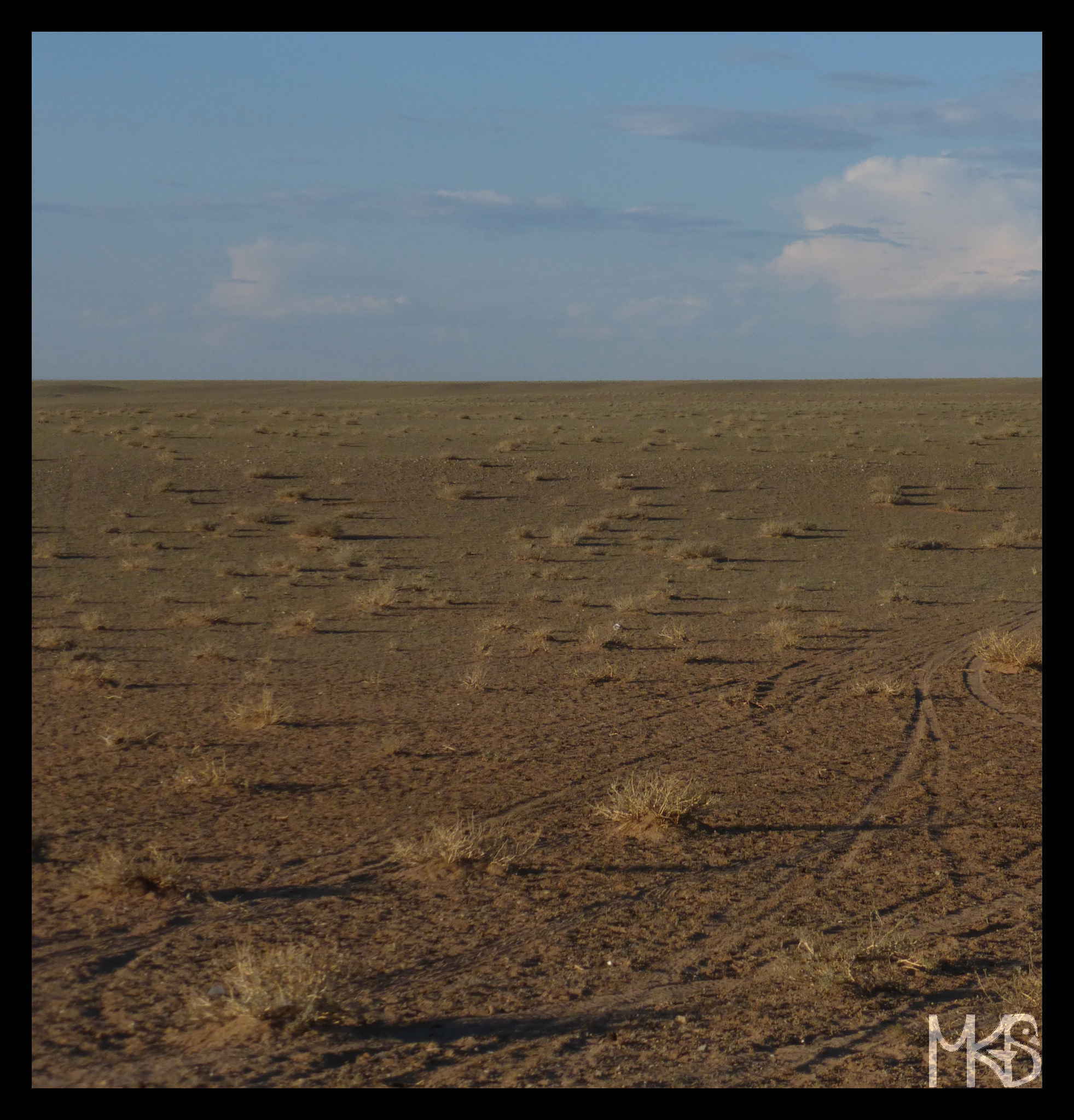
Mongolia is called as the “Land of Blue Skies”.
There are apparently about 250 sunny days a year.
I’m not so sure is it true. Anyway, the name is nice. 🙂
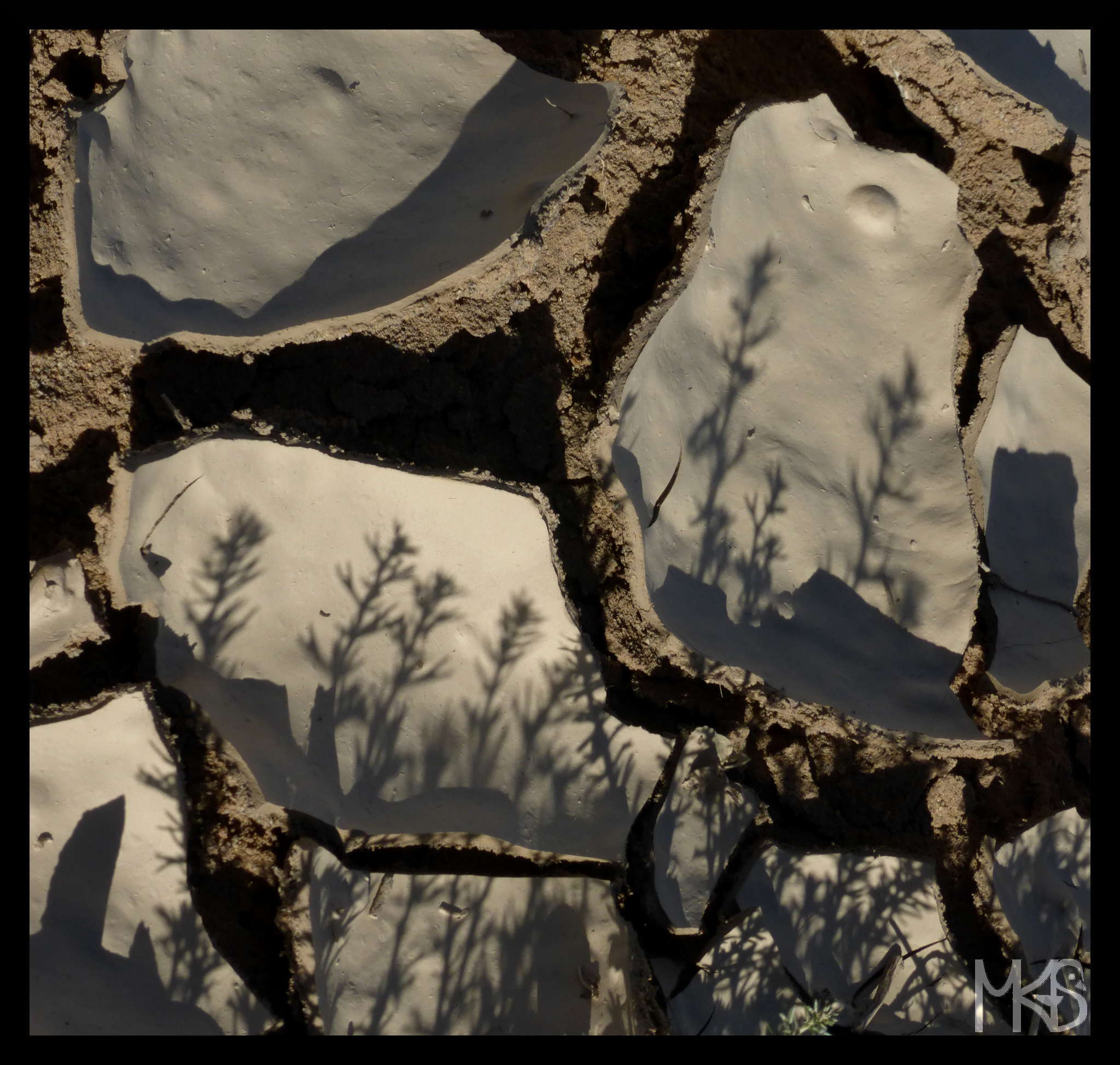
Do you know what Mongolia has in common with the Great Wall of China?
The Great Wall was built because of Mongolians; well, kind of.
The Great Wall was built to protect China from the various nomadic groups of the Eurasian Steppe, e.g., from Mongolia.
p.s. Today’s picture shows the Gobi Desert; it’s not the Great Wall of China.
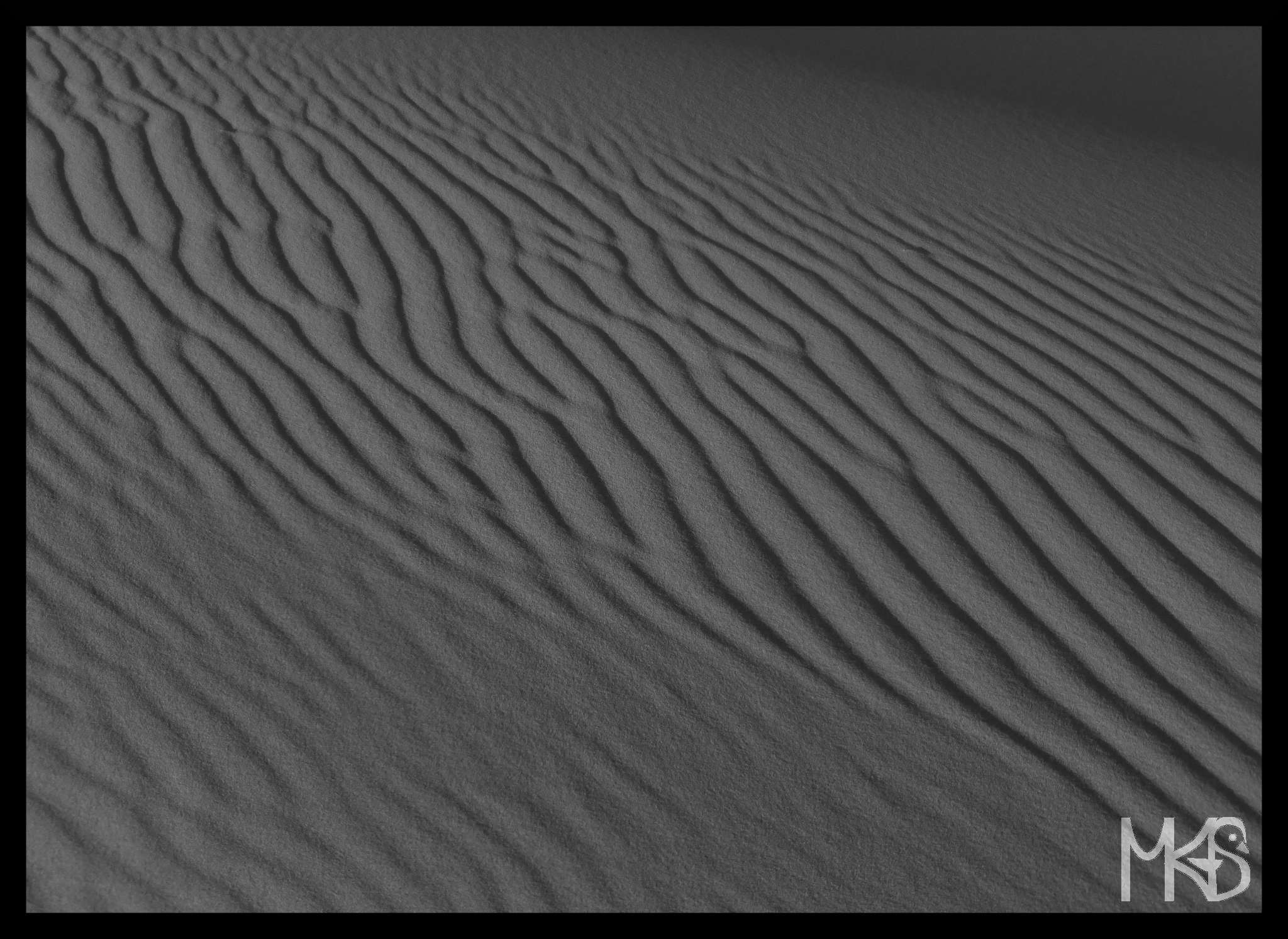
Welcome in August on my blog.
This month, I’m taking you to Mongolia.
Have you been to Mongolia?
I only spent in Mongolia about a week, and mostly explored just one region. However, I think, I was lucky to see one of the best sites of Mongolia. Hopefully, you’ll agree with this sentence after seeing my pictures in August. 🙂
Well, there are many beautiful places in Mongolia, but the Gobi desert stole my heart. 🙂
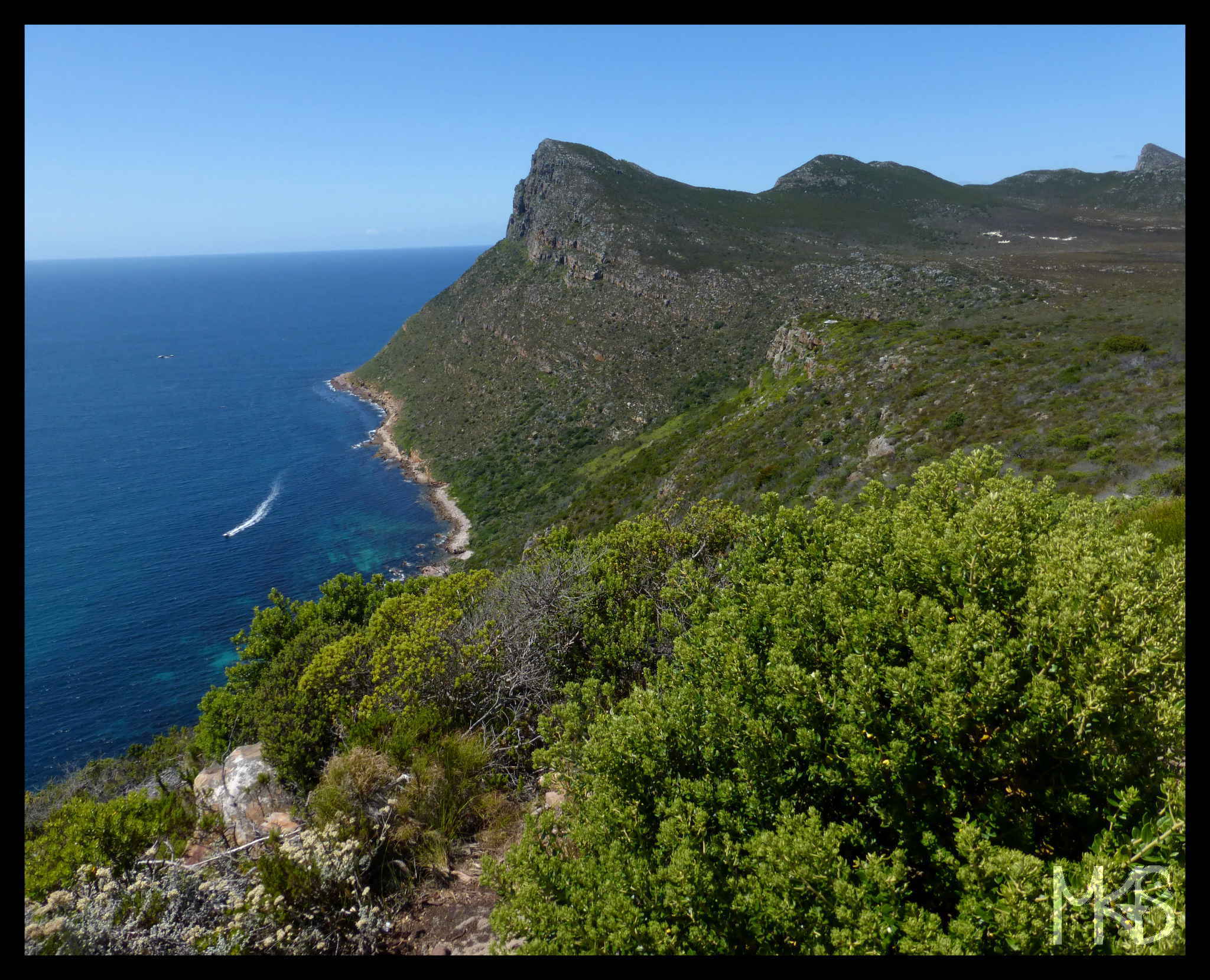
A “South African month” on my blog is almost over.
How did you like it?
Would you like to visit South Africa?
South Africa is a large country and there are still many great regions I didn’t have time to visit (e.g., famous Kruger National Park), hopefully, one day…
And tomorrow, a new adventure will start. 🙂
Stay tuned!

Of course, it’s not a pigeon in today’s picture. Just, this name came to my mind, while waiting for lunch and observing these cute yellow birds. Like pigeons are so common in many places in the world, in that area, I saw plenty of these birds flying between tables, trying to steal some food or begging for leftovers. For me, all pigeons could look like that. 😀
p.s. Who knows the name of this cutie?
EDIT – Thank you for telling me the name of the bird, it’s a Cape weaver bird! 🙂
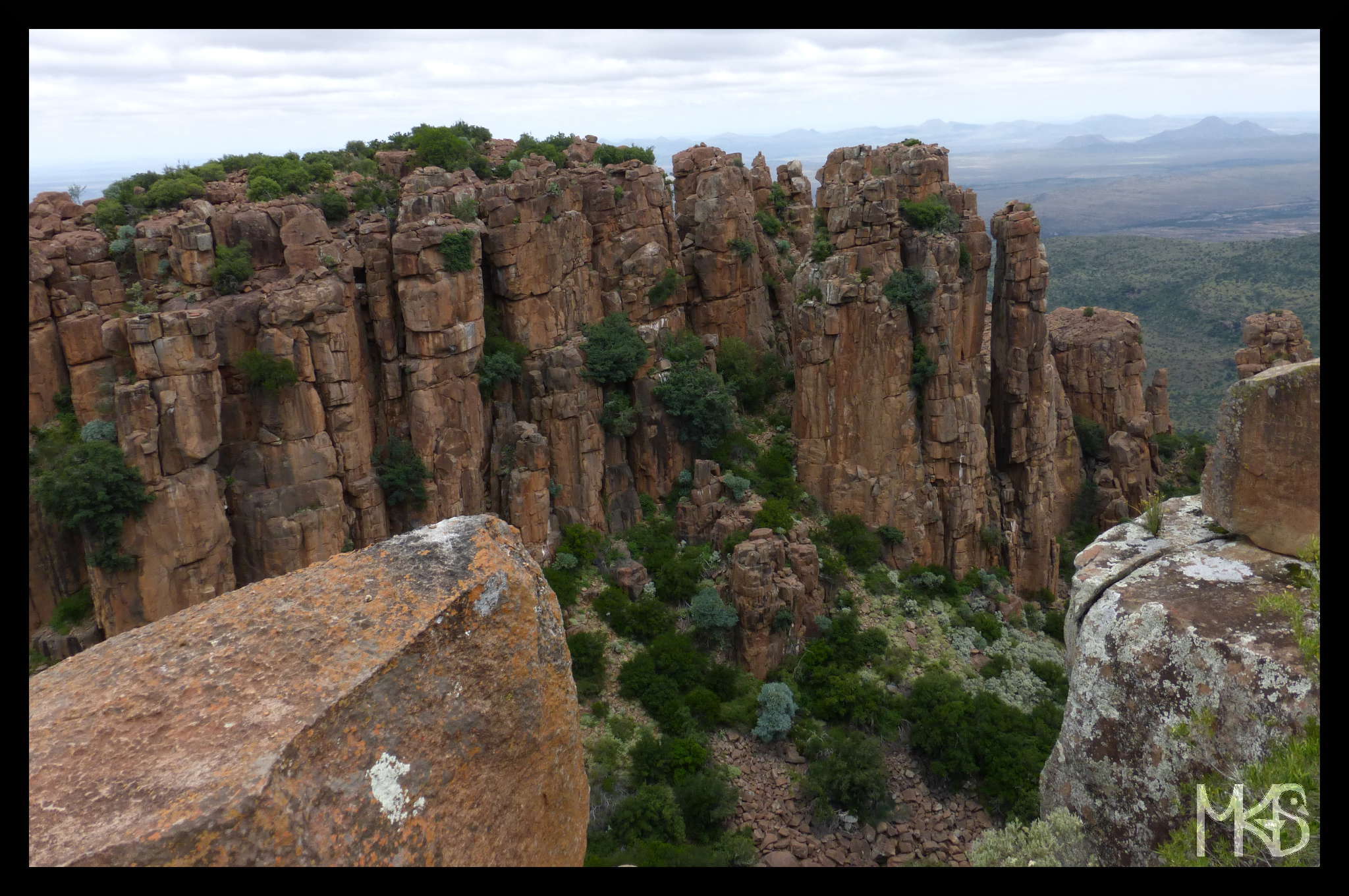
The Camdeboo National Park is located in the Karoo area, nearby the town of Graaff-Reinet.
And both, the park and the city – are tourist attractions.
The Camdeboo National Park is the most famous from the Valley of Desolation (seen in today’s picture).
And, Graaff-Reinet is one of the oldest cities in South Africa. It was founded by the Dutch East India Company and named after the wife of governor of Cape Colony – Reinet van de Graaff.
p.s. Don’t miss the Dutch Reformed Church in Graaff-Reinet.
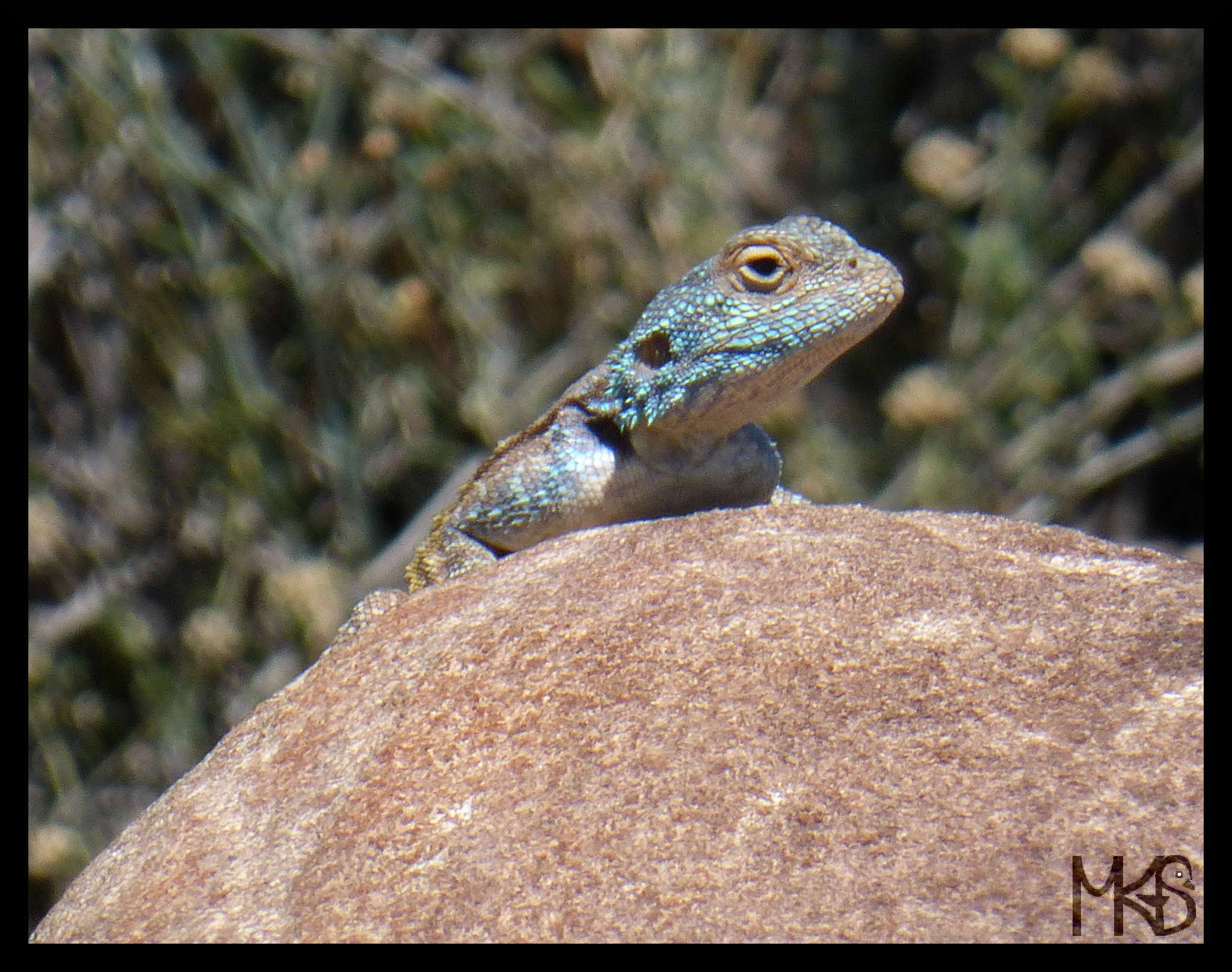
I remember well entering the Karoo National Park. The friendly older ranger greeted us and told us basic information about the park. I liked a lot the picture of a colorful lizard that he showed us so I really wanted to spot it in the park. And we were lucky, so here it is – in today’s photo. 🙂 I know, it’s not a lion… 😉
The Karoo National Park is a wildlife reserve in the Great Karoo.
Some of the animals you may find in the Karoo National Park are:
-springbok
-greater kudu
-gemsbok
-zebra
-buffalo
-red hartebeest
-jackal
-rhinoceros
-eagles
and many more.
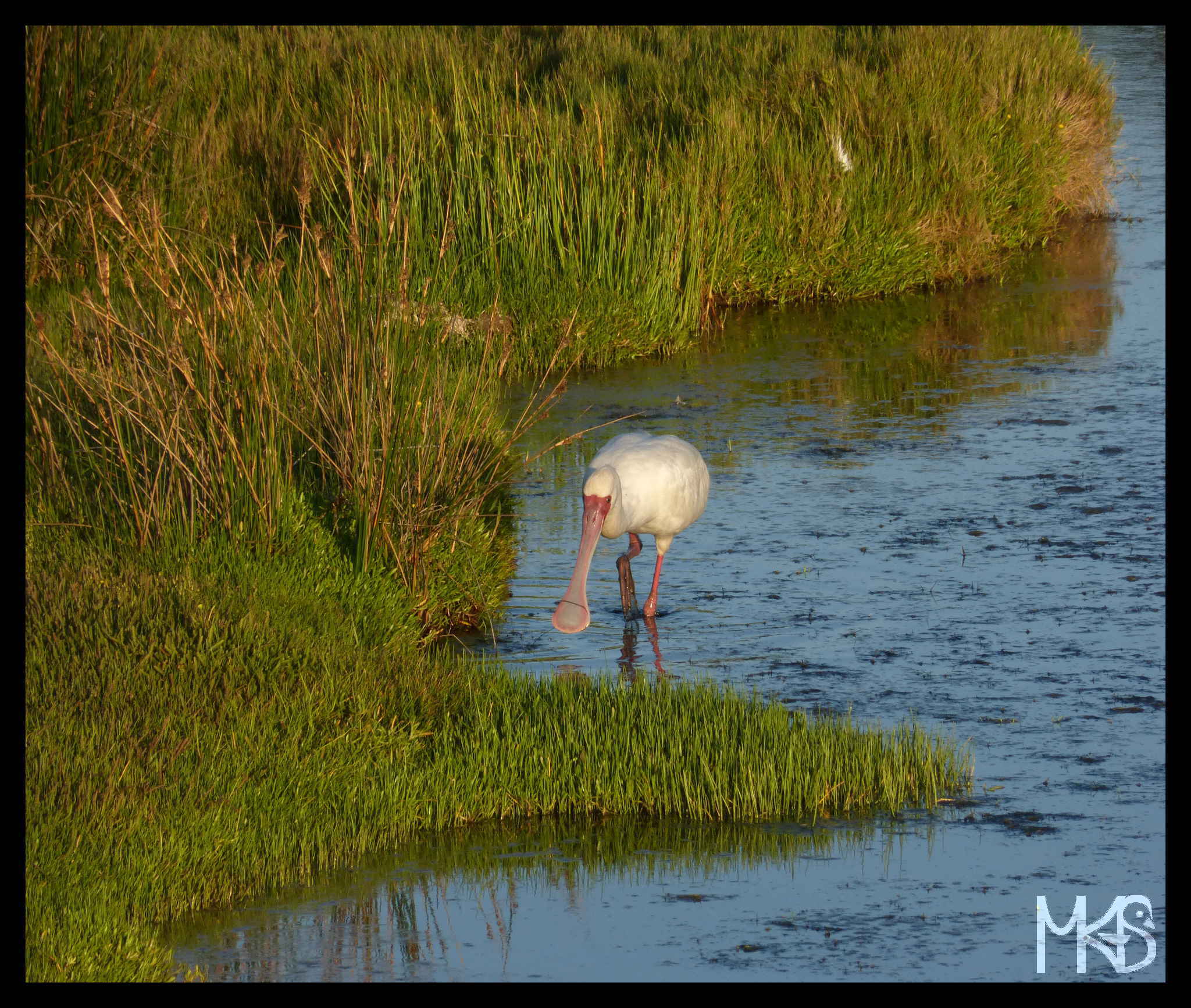
If you like observing birds – South Africa is for you.
I saw many kinds of birds in South Africa, big and small ones, raptors, flamingos, penguins, ostrich, etc.
For the first time in my life, I met there a beautiful African spoonbill (today’s photo).
There are a few kinds of spoonbills living in different places in the world. All of them have large, flat bills – what makes them look very unique and kind of cute. 🙂
Have you ever seen a spoonbill, or maybe they live in your area?
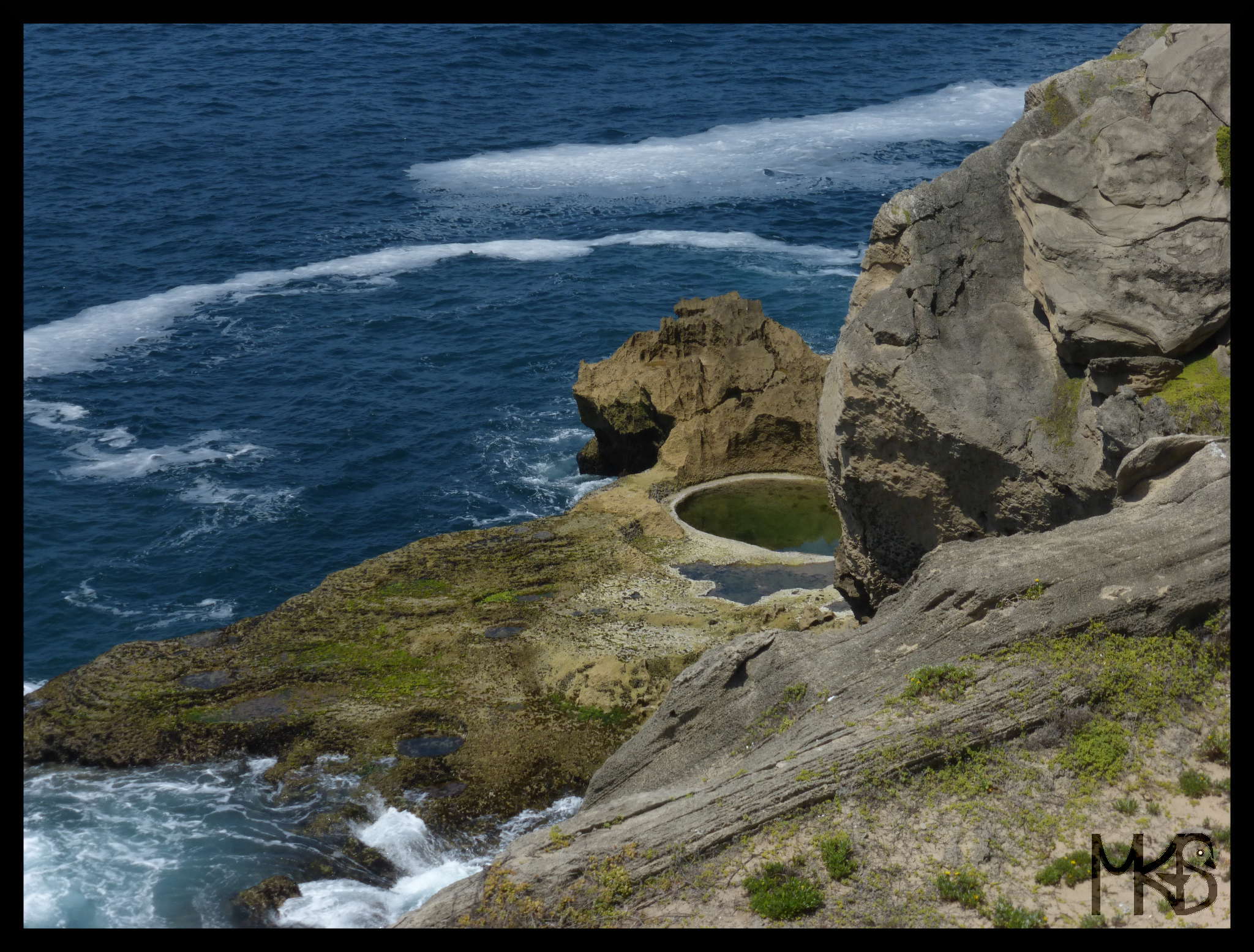
The Garden Route National Park is another area I had a chance to visit in South Africa.
It consists of a few beautiful parks, like the Knysna National Lake Area, Tsitsikamma National Park, Wilderness National Park, Soetkraal Wilderness and Conservation Area, and the Robberg and Goukamma Nature Reserves.
Is it worth visiting?
-Absolutely!
(It’s not a “wild Africa”, but it’s a truly lovely area!)
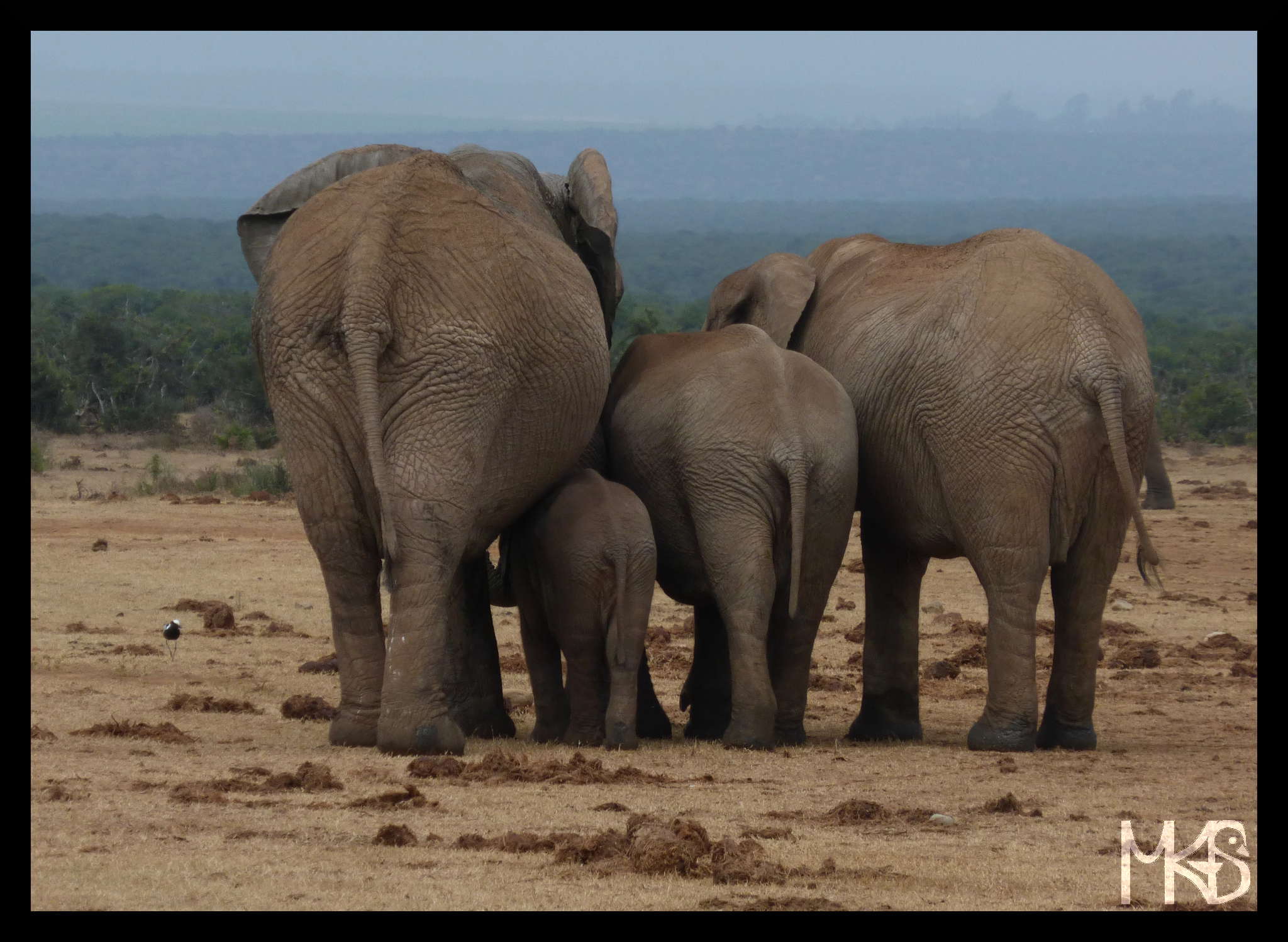
In Addo Elephant National Park, I saw plenty of large African elephants. My camera stayed quite busy there and for sure, I took too many pictures of elephants. 🙂 It was very nice to observe them there, especially their social life!
I think, observing wild animals is always a great experience.
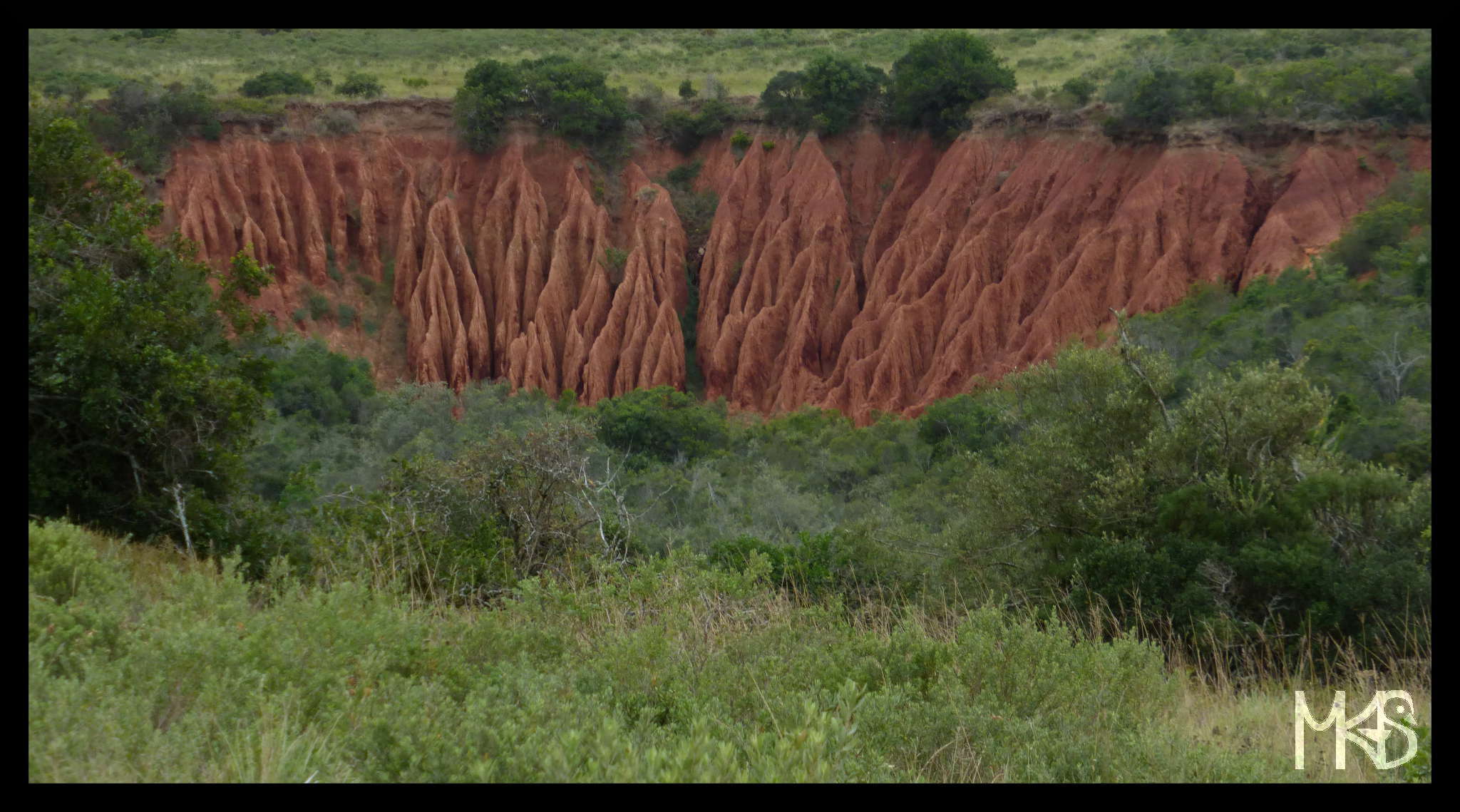
If you love elephants or you’re just nearby Port Elizabeth in South Africa – visit Addo Elephant National Park.
As the park’s name says, you can easily see there elephants, elephants, and elephants. It’s also very likely to spot e.g., Cape buffalo, zebra, warthog and red hartebeest. When you look careful, you may see the flightless dung beetle; and if you’re lucky you may even spot a lion!
(I wasn’t that lucky in Addo Elephant National Park, but still, I had a very nice day.)
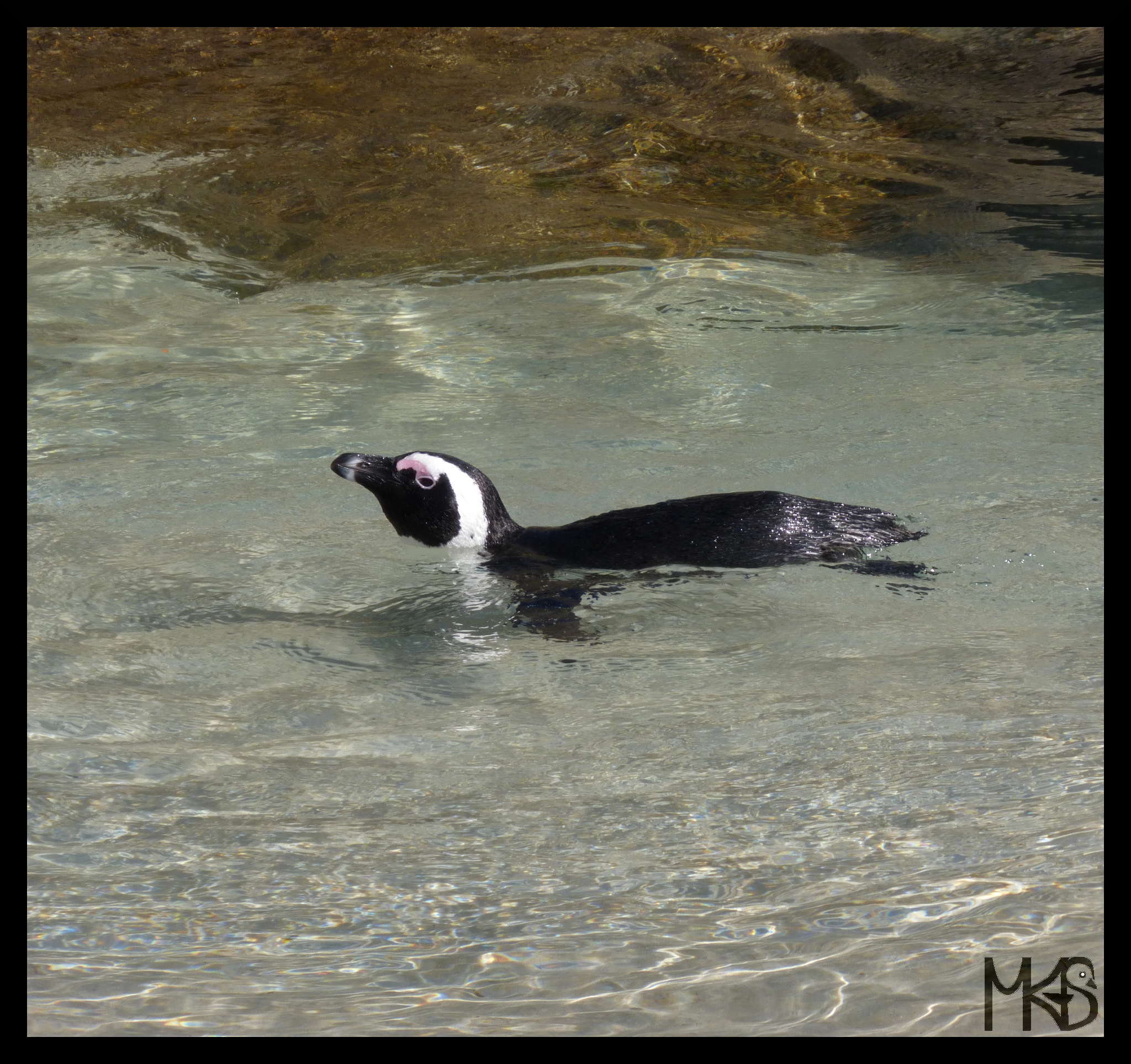
African penguins can be seen in a few places in South Africa (in wild). The best known is Boulders Beach (Boulders Bay) located nearby Cape Town.
You may wonder, how can it be that penguins live in a hot place like Africa. Well, more important for penguins is the ocean temperature and the amount of penguin’s favorite food.
Unfortunately, the population of African penguins is decreasing. 🙁
If you want to learn something about these cute penguins or maybe adopt one (!) – check the website of the Southern African Foundation for the Conservation of Coastal Birds (SANCCOB).
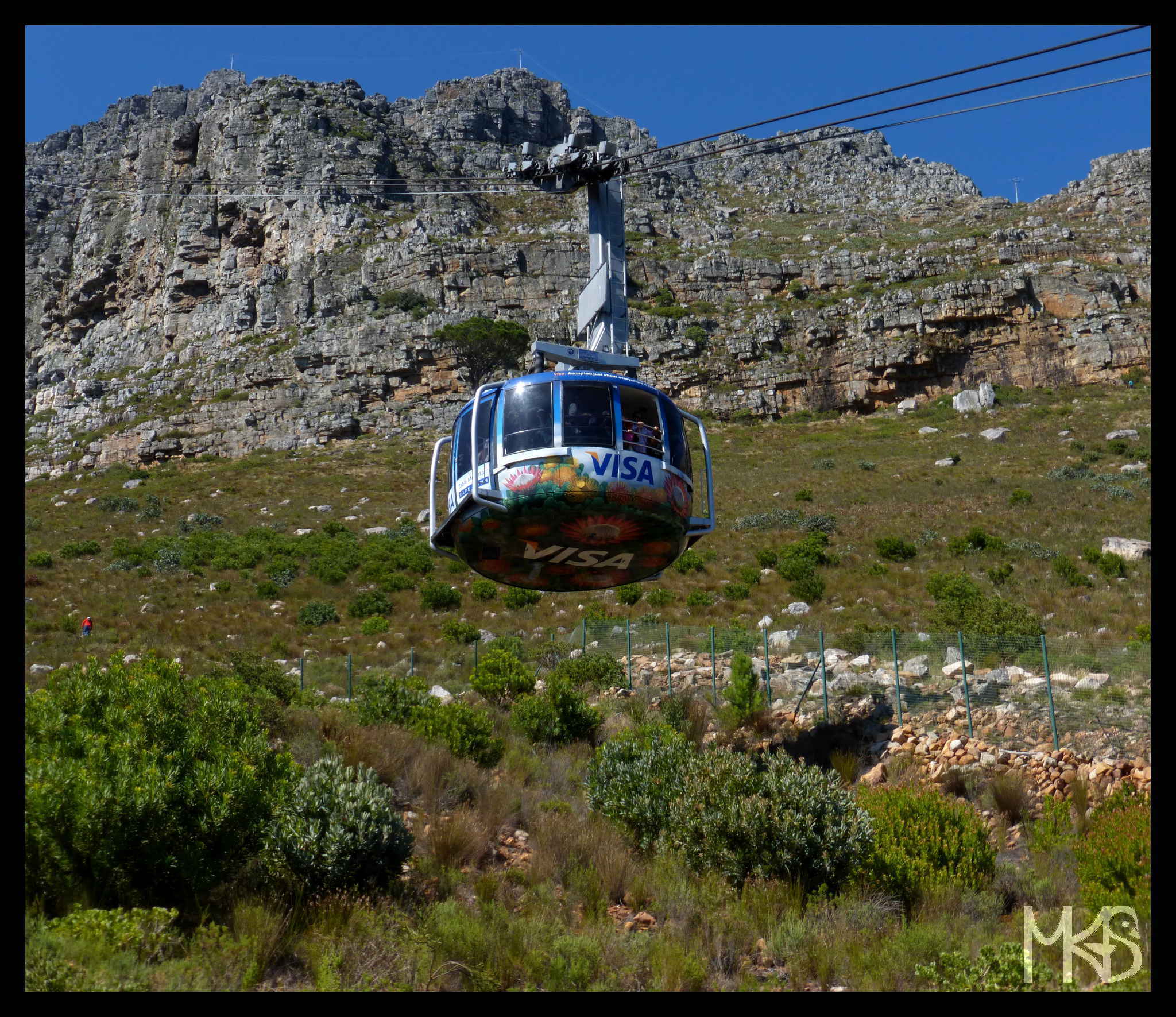
Table Mountain (1084.6 m) is an iconic site of Cape Town.
You can hike to the top or take a cable car (hiking is not the best option when it’s very hot…).
Table Mountain forms part of the Table Mountain National Park. It’s a lovely area! Other famous sites, e.g., Boulders Beach, Cape Point, or the Cape of Good Hope, also belong to the Table Mountain National Park; so it’s definitely a place you have to visit while being in Cape Town!
Besides the scenic views, it’s likely to meet variety of wild animals, e.g., baboons, ostrich, penguins, and more.
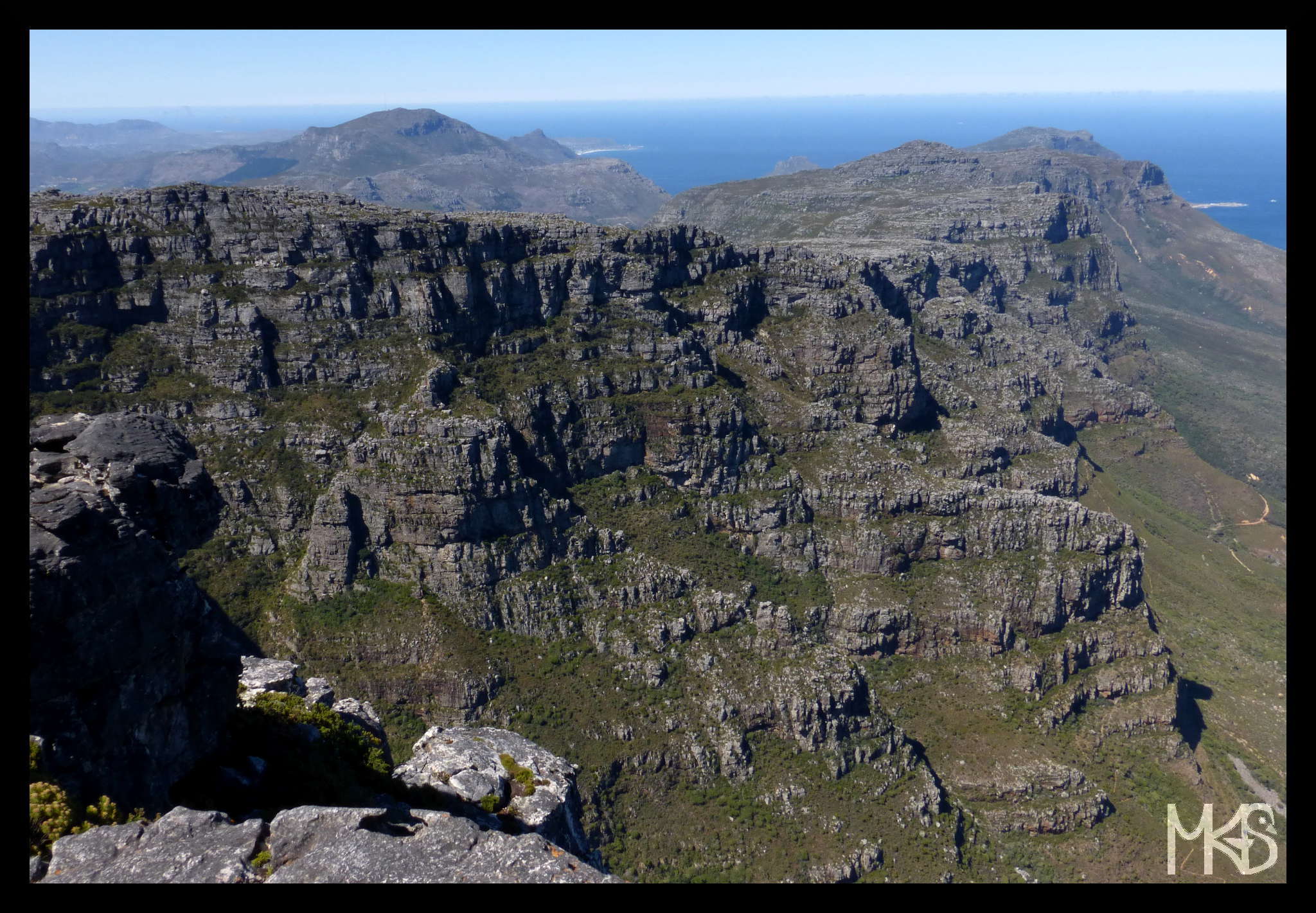
I think, many tourists fly to Johannesburg and then they visit the Kruger National Park. I haven’t been to that part of South Africa, yet. I took a flight to Cape Town, because my friends lived there that time. I wasn’t really impressed by the city, but I loved the region! Mountains, coast, ocean, penguins, etc., – stunning nature! I can definitely recommend you the Western Cape province.

Do you know what’s the capital of South Africa?
Well, it’s a bit tricky question.
My answer is Pretoria, but in fact, South Africa has three capitals:
-Pretoria (executive)
-Bloemfontein (judicial)
-Cape Town (legislative)
p.s. I have no picture from Pretoria – so I’m showing you today a random nature photo. 🙂
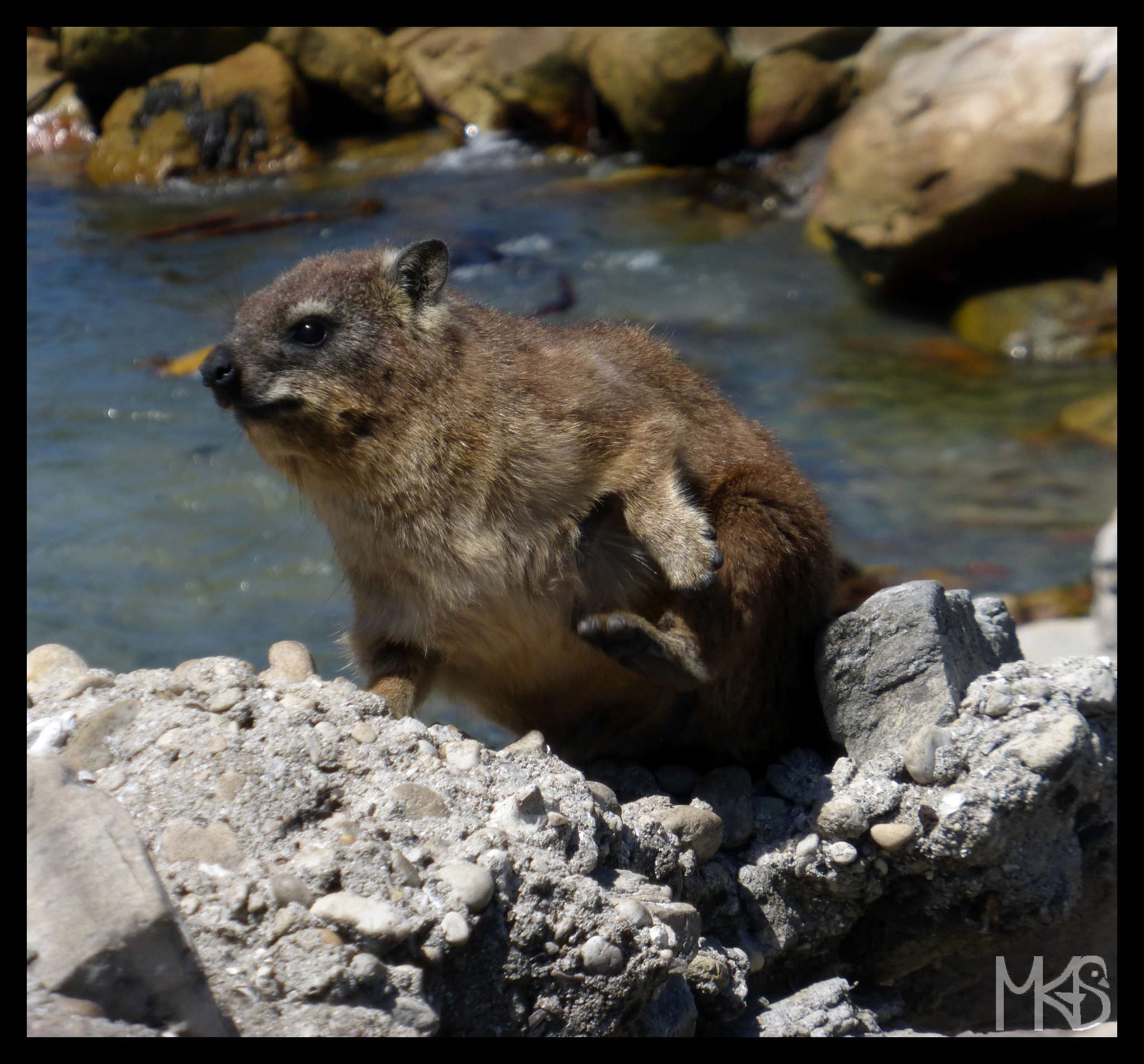
South Africa is a popular tourist destination. However, a safety may be an issue here… Some parts of South Africa are quite safe, but others can be very dangerous – so be careful!
I didn’t have any problems in South Africa, but heard different stories from tourists as well from locals…
Anyway, the nature is really impressive in South Africa!